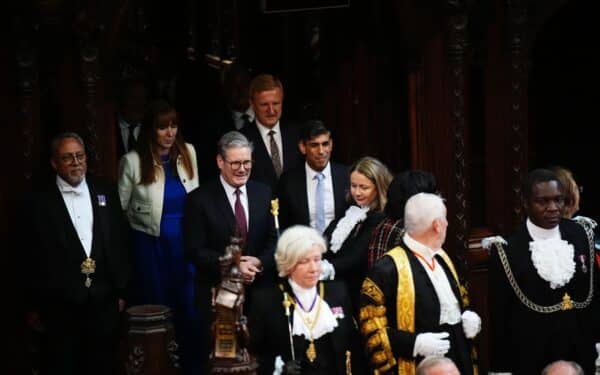It is rare indeed for the Financial Conduct Authority to get something (nearly) right, but it happened this week with its investigation into the strange story of Aviva and its preference shares. The report, mercifully brief at 33 pages (that’s brief by modern standards, believe me) is a gripping tale of how the board of a big company can debate a question exhaustively, take expensive counsel and fail to reach a conclusion that common sense would have indicated in about ten minutes.
Aviva, the disfunctional giant of the insurance industry, has £450m in preference shares left over from previous eras. From 2026, these do not count for insurance solvency, nor are the dividend payments offsettable against tax. They are also “irredeemable”, providing holders with (by today’s standards) a handsome, near-fireproof perpetual stream of income.
When, on 8 March 2018, Aviva suggested that it might possibly redeem them at par (well below the market price), the prefs immediately lost between a fifth and a quarter of their value. After a fortnight of protests and damaging headlines, the company announced that it had abandoned any thought of redemption, and would also compensate investors who had sold at the depressed price.
The redemption of the board’s reputation was rather harder, and the incident contributed to the departure of CEO Mark Wilson soon afterwards. (His rather tragic representation is part of the 33 pages.) The chairman, City grandee Adrian Montague, and finance director have also gone since then, although Montague was already well past his sell-by date.
Missing from the FCA’s blow-by-blow account are the names of any of the participants, whether directors or advisers. Also missing is the suggestion that any director might have to pay for such an impressive level of incompetence. At least the shareholders have been spared the usual spectacle of being punished for the sins of the executives.
Aviva has had two CEOs since then, but it is far from clear whether the latest, Amanda Blanc, under new chairman George Culmer can stop the rot. With this disastrous decision-making so elegantly chronicled by the FCA, long-suffering shareholders can only hope that (as the investment boiler-plate puts it) past performance is no guide for the future.
A pretty little problem for Tesla
Nobody buys shares in Tesla, a mid-sized motor manufacturer, because they look cheap. They buy them because they seem to keep going up, or because they believe in the vision of St Elon, or because the electric Tesla is the car of the future.
All these things may be true, but even if they were, it is more than a few volts short of an investment case. Tesla has been profitable for four straight quarters – a novelty for this chronically loss-making company – but only thanks to selling carbon credits to allow other carmakers to avoid onerous penalties.
The thought of paying hard cash to a competitor is concentrating corporate minds no end, so the big boys are spending billions developing their own electric cars. Ah, the Tesla faithful respond, look at sales in China, the world’s biggest market. So, courtesy of Neil Campling of Mirabaud Securities, are the most recent monthly sales of Teslas, despite multiple price cuts and increased capacity; May: 11,565, June: 14,976, July: 11,456, August: 11,811 and September: 11,329.
The figures for smaller but fashion-leading markets show a similar trend of Tesla’s falling market share. In Norway, it has slumped from 16 per cent to 7 per cent this year.
So not so electrifying, then, perhaps because $42,000 for the cheapest Tesla in China is quite a stretch even for an affluent buyer. Perhaps, also, because coming pootling over the hill is the Hong Guang Mini EV, a pretty little electric runabout selling locally at, er, $4,162, or $5,607 fully loaded.
It may look like a toy, but it is a fully-compliant four-seater motor car. The prospect of it one day being released into European showrooms at anything like this price should strike fear into the hearts of motor manufacturers. Its arrival would also force metropolitan authorities to think again about their passion for electric cars.
It is certainly not going to help Tesla, which is one reason why Mr Campling is sticking with his sell recommendation for the shares, despite having been wrong all year. Last year he stuck to his guns on another share where he was the only bear among dozens of analysts. That was Wirecard.
Free banking, RIP
Long, long ago, in the days when savings paid a measurable interest rate, Midland Bank’s masters had a brilliant idea: they launched an account which attracted no charges as long as it was in credit. The other banks were forced to follow suit at ruinous expense, and have been trying to work out an exit plan almost ever since.
So it was only fitting that HSBC, today’s owner of Midland, should mutter about introducing bank charges (or “negative interest rates” as the current jargon has it) for the privilege of allowing them to look after your money. No plans, of course, just musing, said the bank.
The big UK banks have been reduced to an arm of social services since they were told they were not allowed to pay a dividend, despite capital buffers fatter than they have ever been. Perhaps, since we are all in this together, it is only fair to ask the customers to do their bit, and suffer along with the shareholders.
Shell shock
Good news, of a sort, from Royal Dutch Shell. The ailing oil company has increased the dividend, and now promises to raise it at 4 per cent a year. Only six months ago, in what was clearly a panic attack, the quarterly payout was cut from 47c to a somewhat arbitrary 16c. So at this rate of increase, it will be a mere 27 years before the dividend is restored. Roll on 2047!





